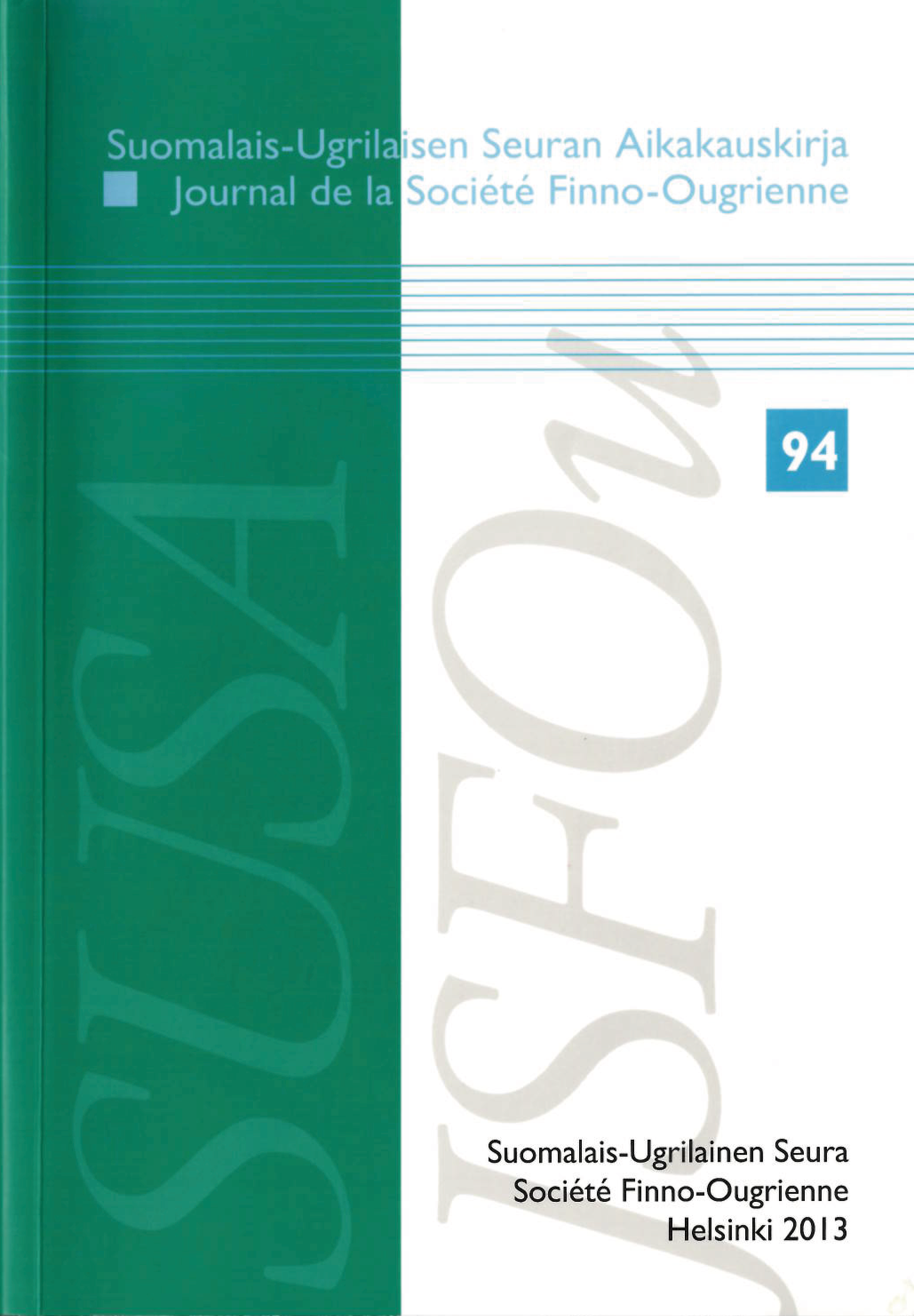Deverbal reflexive and passive in Chuvash
DOI:
https://doi.org/10.33340/susa.82520Abstrakti
The question about reflexives and passives in Chuvash is complicated. Usually, the grammatical elements of the Turkic languages are quite similar in many ways; for example, reflexive and passive verbs are kept separate, each having its own suffixes. Some sources, however, claim that the passive category in Chuvash is formed differently than it is in the other Turkic languages, or even that it does not exist in the first place (Ašmarin 1898: 258–259, Ramstedt 1952: 165, 1957: 149, Serebrennikov 1976: 29, Serebrennikov-Gadžieva 1986: 200). The latest Chuvash grammar does not even mention the word passive when describing the verbal system (V. Sergeev 2002). Yet, the reflexive forms are quite uniform throughout the Turkic languages. This study tries to prove that both of these old Turkic categories do exist in Chuvash, although the line between them can be blurred and their meanings might overlap. The material in this study has been taken from grammars, dictionaries, folklore and translated fiction. Furthermore, the results have been compared to some extent with some of the languages surrounding it (Tatar, Bashkir, Mordvin and Mari) and also with the most studied language, Turkish. The analysis presented here is based on sentences, which has seldom been done in the reference literature used.





